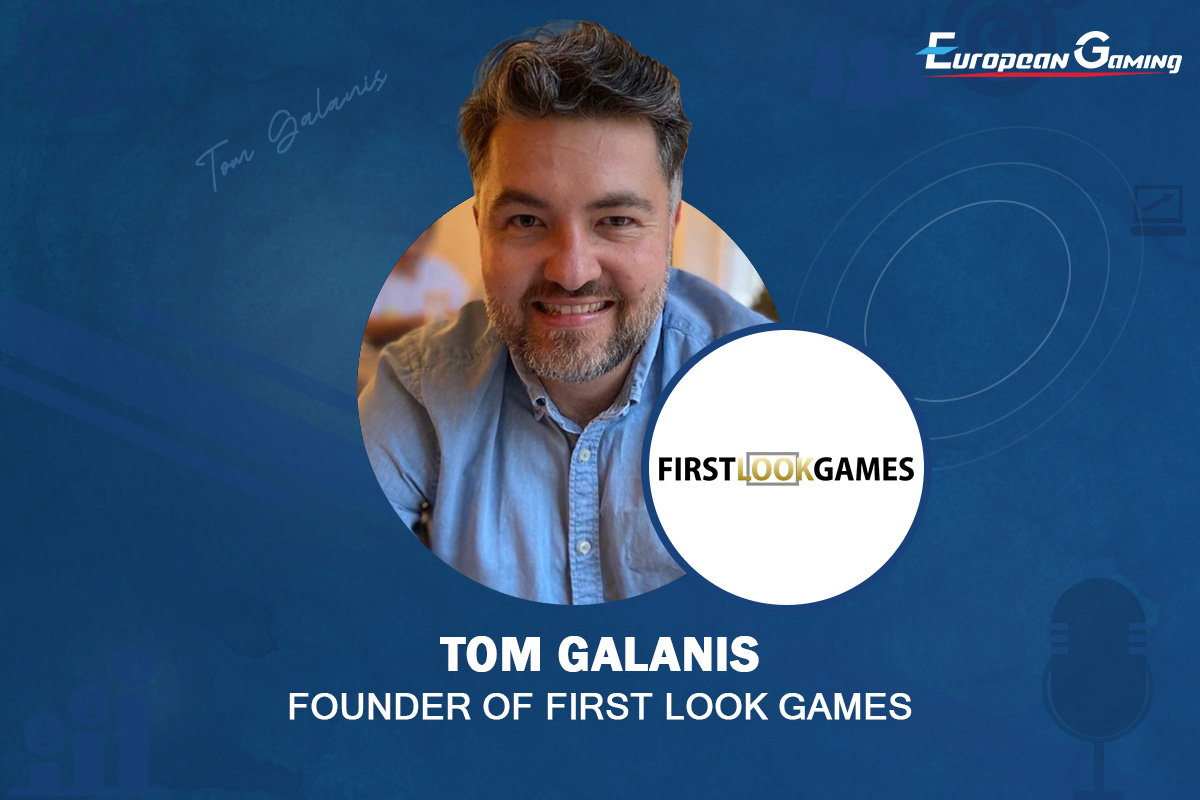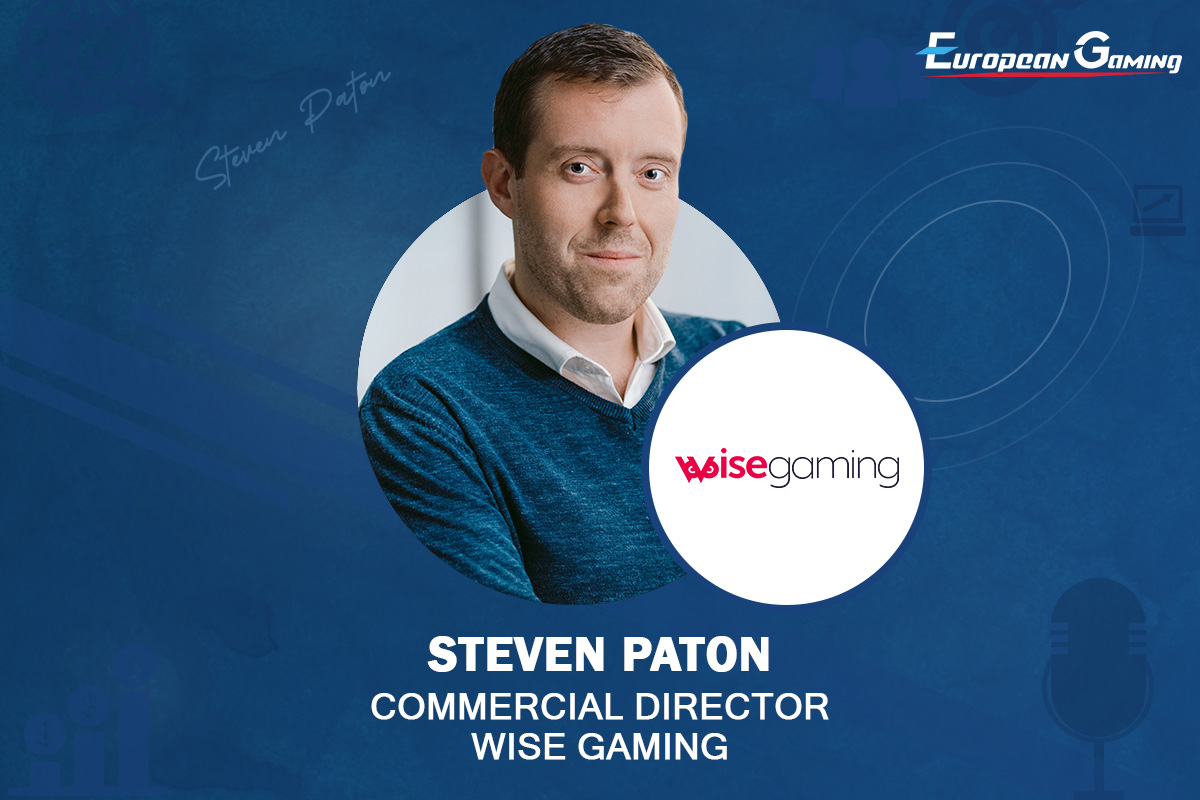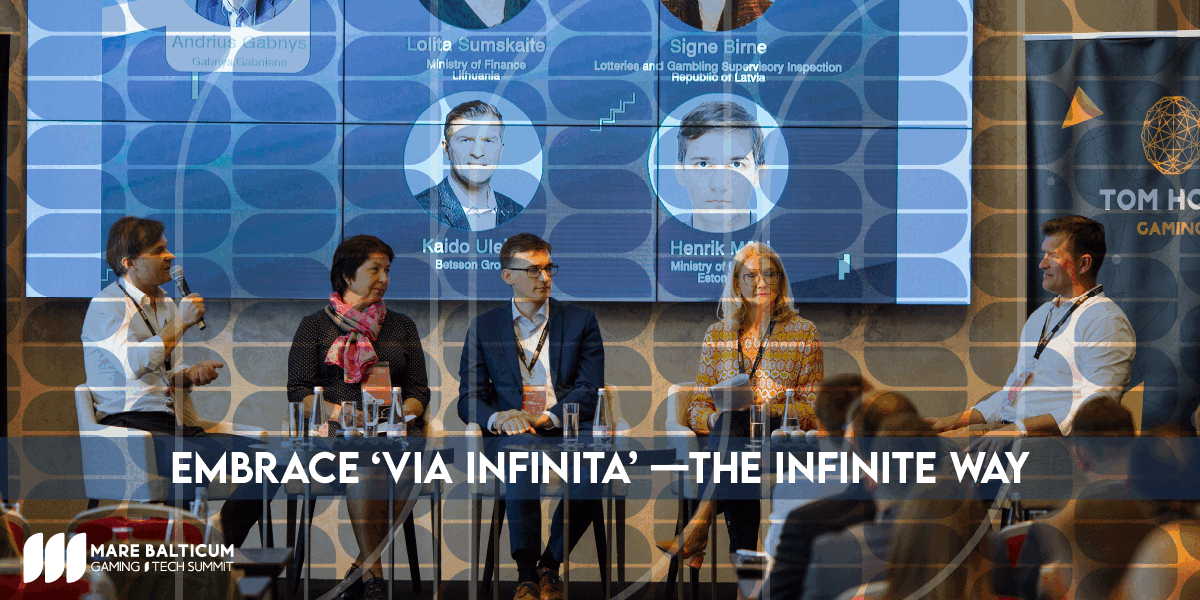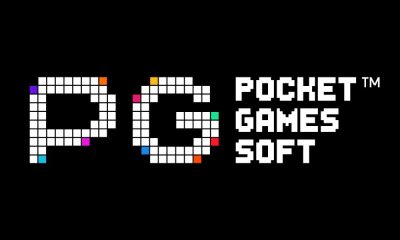Interviews
Platform power
In this round-table feature, we look at the ways in which aggregation platforms are advancing and embracing new technology to overcome pain points for studios entering unfamiliar markets, enabling them to focus on creating quality content for players. Insight is provided by Rhys Hatton, Senior Product Manager at Light & Wonder; Ivica Jovanovski, Head of Aggregation at Bragg Gaming; and Tatyana Kaminskaya, Head of SOFTSWISS Game Aggregator.
How would you define the relationship between a modern aggregation platform, an ambitious games studio, an operator and its players?
Rhys Hatton: When aggregation platforms do their job well, it’s a really powerful relationship. Ultimately, our role as a provider is to remove complexity and provide distribution at scale, into regulated markets all over the world. We do this through the delivery of premium in-house and third-party content, through our OpenGaming platform which is truly scalable and which also contains all of the promotional tools and gamification features operators need to attract and retain players.
The penny has also dropped for some operators when new regulations have been imposed in certain markets including the UK, Germany and Sweden. Our technology platform is able to pivot quickly to react to these changes at a network level, keeping operators legal and compliant without the need to drop content, or having to suddenly handle huge projects and take on fire drills.
Ivica Jovanovski: It is an advanced 360-degree ecosystem that is interconnected and highly interdependent. Each segment plays an essential role, with the biggest emphasis on the player who is the initiator and main driver for competing game studios. An aggregator acts as the link, determining how innovative products will perform among a target audience, while the operator gets the opportunity to test and trial the offering and to enhance their portfolio.
Tatyana Kaminskaya: All actors in this line depend on each other. I guess it is a lot easier when it comes to players, as their major goal is entertainment. Most vulnerable are game studios, as they need to attract literally everyone – players, operators, and game aggregation platforms. And the spheres of interest they target may be totally contradictory, so it is important to find balance.
Generally, there’s no way to leave any of these actors out – they function as an organic whole. Of course, we could imagine studios, operators, and players coping without game platforms’ involvement and without content hubs, but this trend never stays long in the market. Working with aggregators is much more beneficial both for studios and operators in terms of saving resources. Despite spotted direct contracts between studios and casinos, aggregators cannot be ousted because of their ability to handle legal, technical and account management issues. It is the economic viability that tips the scales. Aggregators deal with high volumes, build price offerings, and are a kind of security guarantor for providers.
In which markets are aggregation platforms particularly advantageous as a route to market for studios?
Ivica Jovanovski: In markets with stricter regulations, and ones with few operators where barriers to entry are high and the immediate return for direct integration is expected. Europe and North America are regions where aggregation has really been advantageous to date. However, with upcoming regulations and consolidations in South America, I expect this will change the competitive landscape on the continent and aggregators will play a bigger role.
Tatyana Kaminskaya: Advantages do not depend on markets but on the scale and maturity of a game studio or aggregation platform. The concept is roughly the same for both. At the start, when a studio is new to the industry, it should try getting maximum output at minimum input. The priority should be given to loosely regulated markets which would not involve large expenditures. The first steps in such markets do not require excessive effort to obtain licences or certificates, but help understand the process and build up capital. It gets you prepared for landing in more serious and regulated destinations, such as the UK, already fully mature and weathered to withstand challenges and bear financial costs. It is a certain degree of product maturity when you can afford to invest six to twelve months of your effort and reap the benefit, bringing much more value, later.
I believe studios should focus on choosing a game aggregator rather than a market and seek the best offering matching their current development stage. And while choosing, they start analysing access to operators, services, and technical functionality. The SOFTSWISS Game Aggregator works with over 180 game studios, which is a testament to trust in our functionality and features.
Rhys Hatton: Overall, it is more about the universality of platforms, rather than simply catering to any one market. The breadth of access is important, but at the same time we really earn our lunch when markets are regulating and have evolving requirements. North America stands out in this regard with its fragmented, complex regulatory environment, which varies a great amount from state to state. From a supplier standpoint, this necessitates undertaking major costs in gaining individual licences, given the weight of resources that need to be assigned to this lengthy process. However, a platform provider can remove these pain points at a stroke through the development of strong working relationships with regulators – even before a market has gone live for the first time.
Across the board, the support of a modern aggregation platform nurtures and drives innovation for studios worldwide. We aim to provide operators with stand-out content that occupies every gaming niche, including local, market-specific games. It is vital that the scope of content we can offer is both as broad and as market-specific as possible, taking in every potential player preference. One interesting example here is Light & Wonder LIVE DEALER by Authentic Gaming, which we have taken live in Colombia with other regulated markets set to follow. There is a real appetite for live casino entertainment across the Americas and through the power of our platform, we are perfectly positioned to satisfy the demand by rolling this content out at speed.
What is changing in terms of technology at a platform level, and to what benefit?
Tatyana Kaminskaya: There is no common pattern that would apply to all aggregation platforms. I can say that not only the SOFTSWISS Game Aggregator but also some of our competitors see the need for technology upgrades and closer communication with players. Traditionally, a content hub has been an invisible mediator allowing players to run a game. At the same time, players are unaware that this mediator exists. That is why game aggregators try to input their value and approach players – for example, to create engaging tools to bring additional value both for game providers and operators or add functionality unavailable in games.
But this is only possible if a platform has grown its basic functionality to the golden standard – an extensive game portfolio, data processing, help desk, multifunctional back office, and high-level service. And after that it is time to add icing to its cake – additional player engagement and retention tools.
Rhys Hatton: It has also been interesting to see some of our competitors now adopting solutions that we have had in our locker for a while – such as our client middleware solution. It’s inspiring to see others incorporate and build upon our ideas, as it shows the impact and relevance, they have in the industry. Going forward, we believe the future is also about continuing to build out our network services. For many years, we have offered network-wide Free Rounds, which removes the complexity of many different back offices and systems for operators, and we are busy expanding this to incorporate new features. There are smaller aggregators and single studios that have developed great products in this space and there is no question we have areas we are targeting to catch up. At the same time, achieving what we already do at global scale across the whole network is already huge for us and not something you can get easily elsewhere.
In terms of content, our acquisition of Playzido has significantly increased the scope of our capabilities. Its proprietary Remote Gaming Server (RGS) platform is one of the best in the iGaming industry for rapid custom game development and already, it is helping to accelerate the pace at which we can help both game studios and operators across the world to co-create new and exclusive content for players. With competition higher than ever for player attention, this approach drives differentiation and innovation for the benefit of all stakeholders.
Ivica Jovanovski: There are two streams, in which change is guided. First are the technological improvements, from blockchain, VR, and AI which can help build up the gamification experience. The second thing is the easier compliant adaptation to new regulated markets, enabling faster delivery, which is crucial when first-mover advantage is so important.
How important is it for these platforms to be robust at scale, to provide players with a seamless entertainment experience?
Ivica Jovanovski: Due to the large data and traffic volume processing, stability and security are exceptionally important. This serves as one of the biggest competitive advantages for operators. As technology continues to advance, the platforms will only become better, and more elements and functions will be added that will further improve the experience for players.
Rhys Hatton: We often talk about online gaming as being part of the wider entertainment ecosystem and rightly so. However, that idea goes hand in hand with the expectation of a perfect playing experience and this means platform resilience at a global level. Wherever they happen to be in the world, players demand a gaming session free of all technical bugs. If a game breaks down upon trying to open it, there’s a risk that a player will never play it again – or worse, leave the operator altogether. In emerging markets in particular, the implications on revenue of losing a casino player due to a substandard gaming experience is of major significance. That is why for major platform providers, such as Light & Wonder, reliability at scale is not only desirable, but utterly essential.
Scalability at a platform level is also about customer protection. Technical attacks across global markets will continue to become more advanced, ranging from data breaches to ransomware. Operators need to know that their chosen platform is resilient and reactive to such adversity, so that its operations continue to be efficient while running at scale.
Tatyana Kaminskaya: Since game aggregators are invisible actors in the gameplay process, the bare minimum of seamless operation is when a player starts a game without noticing its technical side. Players value good gameplay which is free of technical issues. Therefore, flawless operation is a must for game aggregators, same as the ability to process big data flows, so that no technical anomalies would interfere with exceptional player experience. And only when you have reached perfection at this stage you should approach players – with no pressure but giving space to accept or decline your offer. That’s exactly what we do with the SOFTSWISS Game Aggregator’s Tournament Tool – we analyse, and adjust to, player preferences, showcase the benefits we offer, and give a choice.
The same story is with bonus games, savings, challenges and others. They all can become valuable assets and find their niche, but are absolutely worthless without the basic functions working properly. But the more competitors offer, the faster these additional features will outgrow from pleasant additions into a must.
How do you see the future landscape developing for aggregation platforms?
Tatyana Kaminskaya: Answering this question, I will repeat my previous words: aggregators will interact more with players. Historically, only operators used to have direct access to players – they kept in touch, built communities, etc. Once a game is downloaded, the game provider also gets access to players, but it is not communication that matters at this stage, but a quality gaming experience. At this point, aggregation platforms could enter the communication process and work on retaining and engaging players through additional features and tools. It doesn’t mean that players will remember our brand – we would rather not brand ourselves in this context. But we will show operators that an aggregator can help boost player retention, increase the number of players, their LTV and potential deposits without any additional effort from a casino. Operators will want to work with us and recommend us in that case. And if we develop sought-after and popular functionality, casino players will ask for specific features available only through aggregation platforms. This will facilitate the growth of game aggregators and strengthen their impact on player experience, boosting further developments and updates to their functionality.
Ivica Jovanovski: If the pace of innovation is sustained, adeptness of modern technology is accelerated, and adaptation to new regulations is expedited, operators will value a reliable partner across multiple markets, and this bond will get even stronger. Since many parameters inevitably have to be adapted, platforms will geographically divide and develop in different directions. One thing is certain – the future is strong for aggregation platforms as they solve a number of headaches for operators and help them boost their offering and accelerate their reach in key markets.
Rhys Hatton: We believe that particularly when it comes to emerging markets, the future for aggregation platforms such as OpenGaming continues to be very bright. In addition to delivering content to operators quickly and at scale across multiple jurisdictions, with a tech stack and tools that are designed to aid this process, there is also the issue of agility at play. Again, it is about suppliers being able to utilise the resources that an aggregation platform has available: the ability to conduct adaptive planning and to continually assess and evolve whole responding to changing requirements. Regulatory change, which can often be imposed without consultation, is a fact of life in our industry. It is about how a platform provider can adapt and meet shifting requirements and expectations for the benefit of everyone, while also providing added value beyond scale and distribution.
Powered by WPeMatico
Interviews
Tom Galanis: giving a First Look at the Top of the Slots

Gone are the days when we would spend a Thursday evening waiting for Top of the Pops to come on our televisions so that we could see who would be performing that week. The music show may no longer be running, but First Look Games has taken inspiration from the long-running staple and added a slot spin, to create Top of the Slots.
To give us more insight, First Look Games Founder Tom Galanis walks us through the ideation process behind Top of the Slots and how this is helping to give an accurate representation of the top-performing slot titles each month.
You launched Top of the Slots by First Look Games a couple of weeks ago. For those that may have missed the launch, what does this involve?
Tom Galanis: Top of the Slots is a showcase for the top 10 games launched by game studios via the First Look Games platform over the previous 90 days. It’s a never-before-seen take on game popularity and one our game studio partners, and affiliate users are already loving!
What was the thought process behind launching Top of the Slots?
Tom Galanis: First Look Games captures unique data for our game studio partners and Top of the Slots is designed to illustrate the most successful games, benchmarked by this unique data insight, to the industry.
What do game providers have to do to make it into the top ten releases for the month? What metrics do you use to evaluate success?
Tom Galanis: In order to make it in to the top 10, game studios need to release titles via our platform that successfully resonate with the 850+ affiliates that utilise First Look Games, making full use of the suite of tools we offer on and outside of the platform to engage affiliate marketers in the promotion of their game. The rankings are based on the First Look Games Index for all games launched to the market in the preceding 90 days, which combines:
- a) Downloads – which is the aggregated total of download sessions amongst affiliates on the platform. Affiliates download assets including logos, game sheets, video files, screenshots, banners and game artwork;
- b) Hits – this is the aggregated total number of game reviews for the game, created by affiliates using the First Look Games platform;
- c) Reach – this is the aggregated unique visitor count of the websites containing the Hits;
- d) Demo Game Sessions – this is the number of free to play demo game sessions that have taken place from iFrames placed on Hits.
- e) Sentiment Score – this is the average sentiment score from Hits
The games that rank well in this index are obviously commercially successful in their own right but are also being reviewed by affiliates because of the engagement of the game studio with the First Look Games platform, and consequently, with affiliates.
Our most active game studios are not just releasing great games with frequency but are also ensuring their game and studio news is distributed across the First Look Games platform and social channels and that a full and diverse range of marketing assets and game information is being provided through the platform prior to a game’s release. This best equips affiliates to understand the features of a game so that they can successfully convey this to their player audience, which, collectively amongst FLG affiliates, is very significant, totalling more than 20 million slots players worldwide.
Tell us a bit more about the First Look Games sentiment analysis – how is this helping to remove the biases from the ranking process? What data do you use to inform this analysis?
Tom Galanis: Once our technology has identified a new game review, First Look Games uses Natural Language Processing to ‘read’ the review and assess what the affiliate makes of the game. We share a short snapshot of this with the game studio and assign a score to the review based on how positive the affiliate has been in their review of the game. The more positive the language used in the review, the higher the score.
Sentiment scores are then aggregated across all reviews of the game to give a score for the game, and across all games to give the studio a score to benchmark against peers. Using AI, we are able to objectify the subjective to provide true 360 analysis on how affiliates are promoting a game.
What can we expect to see from First Look Games for the remainder of this year?
Tom Galanis: We have a perpetual roadmap of both new studio launches and technical advancements of the platform for affiliates and game studios to look forward to!
The post Tom Galanis: giving a First Look at the Top of the Slots appeared first on European Gaming Industry News.
Interviews
Exclusive Q&A w/ Steven Paton, Commercial Director at Wise Gaming

Could you describe the range of products and services that Wise Gaming offers? What makes them unique or appealing to potential clients?
Wise Gaming is the fastest-growing, Complete platform offering both White-Label & Turnkey Solutions. The Wise Gaming solutions are built from our team’s extensive experience: 15 years B2C and 10 years B2B. We know the importance of a truly modular approach, allowing our partner the ability to obtain our entire solution or individual components to enhance what they already have.
In what regions or markets does Wise Gaming primarily operate? Are there any plans for expansion into new territories?
Our focus has been on both the European & LatAm Continents. With enormous success in our B2C operations, we are relying on our extensive experience. We believe the balance between established & emerging markets brings both knowledge and the ability to learn and adapt, truly focusing on our partners needs without limitations.
2025 will be Wise Gaming’s year of expansion! 2024‘s goal is about building on our success in EU & LatAm whilst planning next years’ growth in both Africa & Asia.
What technologies does Wise Gaming employ to deliver its iGaming solutions? Can you highlight any proprietary technologies or platforms that differentiate your offerings?
From our 15 years of B2C success, we felt that we understood both the pleasure points and pain points that most operators face on a daily & weekly basis. Therefore, we build our Wise Gaming solutions with a customer-centric approach, How can we support our partners to support their customers. We diligently sourced the industry’s best-in-class providers for both our Sportsbook & Casino content, utilizing Enterprise software to provide the most robust offering in the iGaming industry.
Our dedicated in-house teams visualize, build and enhance our Proprietary systems for each of our Partner’s needs, making each of our partners brands Unique.
In what ways does Wise Gaming prioritise security and data protection within its technology infrastructure?
As previously mentioned, our customer-centric approach is vitally important to Wise Gaming and our Partners! Providing the correct technology and experience to our partners is key to having a successful KYC, AML, Due Diligence and Data Protection process. We opted for Amazon AWS solutioning to provide market-leading security, Encrypted databases & data storage, penetration resilience, DDoS attack elimination, dedicated Back-Office segmentation and User-based access, protecting player data while safeguarding our partners operations.
What are the current trends or challenges you’re seeing in the iGaming market? How is Wise Gaming adapting to these changes?
The speed in which technology advances is always a challenge for any provider. The key is to know your markets, the players, the accessibility of online entertainment such a sports betting & casinos and implement the technology that meets these variables. Everyone is talking about AI & Machine learning, and rightly so! With such advancements AI & Machine Learning models, it would be irresponsible not to utilize them. Whether it’s for Player customisation, Events based recommendation or supporting operational needs such as RG, KYC & AML, AI & machine Learning should be used to ENHANCE human interaction, not replace. At Wise Gaming, we have already implemented AI & Machine Learning models to provide the unique edge to our partners.
Also localized content is important. Every market is its own unique playground with their own specific cultural identities. Knowing these identities and becoming an expert in these will not only assist in the acquisition of players, it signifies a brand’s genuineness and authenticity to that market and allows greater player retention. At Wise Gaming we have already implemented A.I & Machine Learning models
How does Wise Gaming ensure compliance with regulations in various jurisdictions? How important is regulatory adherence in your sales approach?
I will answer these 2 questions together. The market is experiencing a shift in regulation, and compliance. MGA & CGA license domination has been challenged, with more and more markets opting for tighter safety measures and implementing their own self-regulated approach. This brings safety to players and trust.
Working alongside regulators will always help, and more importantly, we can learn from each other. Adhering to regulation is ultimately for a player’s safety and that is paramount for the industry’s longevity. Wise Gaming continuously enhances its platform to conform with regulations, making it safe and reliable for our partners.
What are the key factors potential clients considering when choosing an iGaming provider, and how does Wise Gaming address these factors in its offerings?
As previously mentioned, experience and knowledge are key attributes from both an operational and technical aspect. “You can’t plant apple trees and expect to get oranges!” Wise Gaming’s experience & knowledge puts us, and our partners, at the forefront of each market, allowing substantial growth and higher ROI.
Time to market should also be a priority. Whilst most Providers offer 2-4 months implementation time, Wise Gaming can deploy your platform within 2-4 weeks, giving us the competitive edge in a highly competitive space.
How does Wise Gaming incorporate feedback from clients into product development and improvement?
Experience and knowledge are simply 1’s learning over time. Our approach at Wise Gaming is that of a learning mentality, “you are never too old to learn!” iGaming is rich in experts – We trust our Partners, and they trust us, it’s the unification that builds long-term partnerships. We have 2 ears and 1 mouth, use them in that order!
What are the future goals and plans for Wise Gaming? Any upcoming innovations or developments you can share?
Our goal is to continue providing a reliable and robust platform, listening and delivering an innovative and unique solution for each of our Partners.
Innovative Developments – If we tell everyone, they won’t be innovative 😉 However, what I can say is that we are focused on “advanced”, real-time localised AI recommended content both Casino & Sportsbook.
The post Exclusive Q&A w/ Steven Paton, Commercial Director at Wise Gaming appeared first on European Gaming Industry News.
eSports
eSports in the CIS region , Q&A w/ Viktor Block, Senior Sales Manager/PandaScore

Esports has long been popular in the CIS region, with various top-tier teams and players all calling it home. How has the landscape evolved over the last few years? Have any particular trends emerged that have surprised you at all?
Esports boomed in the CIS region in 2008 when Multiplayer Online Battle Arena (MOBA) games became really popular. While esports had been a thing as far back as 2003, the rise of games such as Counter-Strike and DOTA2 was a major catalyst for the upward trajectory the sector has been riding ever since. In recent years, the infrastructure needed to support esports has improved drastically across the CIS region, including the construction of the Pixel Esports Arena in Minks, Belarus, and the Cyberspace Arena in Almaty, Kazakhstan, both of which hold top-flight contests. Internet connectivity has also improved, while support from local and international sponsors such as Monster Energy, Red Bull and War Gaming have provided funds for further investment while also driving awareness. Ultimately, this has seen the landscape evolve into a thriving industry with lots of opportunities for further growth.
In terms of trends, and especially relating to esports betting, I’ve been surprised by the high demand for betting on console games – we call them eBattles and they include disciplines such as eSoccer and eBasketball. I think this is just a natural development that has occurred off the back of strong demand for video game content, which is often the bridge between traditional sports and esports.
What factors have contributed to esports’ growth in the CIS over the past few years?
One of the biggest factors for me is that teams have become more professional and are now training and playing in well-run clubs. This takes place in dedicated buildings and rooms, set up with high-speed internet and the absolute best gaming equipment. Player salaries have also gone up, which has increased the calibre of players taking part in contests across the region, taking competitiveness to the next level. Today, many CIS players now play for high-ranked teams such as Virtus.pro, Team Spirit, Betboom or Na`Vi which compete on the international stage. This in turn is helping esports grow across the CIS region.
Given how many countries are in the CIS region, can you walk us through some of the biggest regulatory differences when it comes to betting on esports? And how does PandaScore navigate these changes?
The legality of betting and esports betting differs from country to country within the CIS region. Some are super strict or even prohibit gambling, while others take a more liberal approach, regulating the activity and licensing operators. Let’s take a look at some of the biggest markets and their approach.
In Ukraine, esports has been recognised as a sport since 2018 and in 2020 the country regulated and licensed gambling for the first time. The law focuses mostly on standard betting – sports and casino – but is likely to also include esports betting given that esports is a recognised sport in the country with tier-one Ukraine sportsbooks like Favbet and Parimatch offering it to their players.
Kazakhstan has a growing gambling industry with betting shops and casinos operating in major cities such as Almaty and Nur-Sultan. Gambling is regulated by the Ministry of Culture and Sports and while the regulatory framework is somewhat restrictive, sports betting – which is likely to include esports betting – is permitted.
Navigating the constant changes in betting regulation across the CIS region can be challenging, so we make sure to keep up to speed with the latest developments by monitoring legislative updates and amendments to regulatory guidelines. We also track industry trends and best practices to anticipate regulatory changes ahead of time, allowing us to adapt quickly if needed. This can involve benchmarking against competitors, attending conferences and networking with key stakeholders.
In your view, are there any unique opportunities for the expansion of esports and esports betting within the CIS region? And how does this differ to other regions?
It’s important to understand that CIS, especially Ukraine and Kazakhstan, play by their own rules. By that I mean they are very different to other esports markets, so don’t think what works in Italy will work in Ukraine. For example, while League of Legends is very popular in Europe, in CIS, it’s Dota 2 that takes the top spot. But for those who can understand the region and each market, there are plenty of opportunities to explore.
Let me elaborate. Dota 2 is thriving in the broader CIS, with regular tournaments and events attracting large audiences both offline and online. teams like Natus Vincere (Na’Vi), Virtus.pro and Team Spirit have achieved significant success in Dota 2 competitions, contributing to the game’s popularity in the region. While Dota 2 is big, other video games also enjoy significant popularity, including CS2, World of Tanks and Fortnite among others.
Operators need to consider this when deciding their markets and odds, marketing strategies and plans for player engagement.
What would you say is the key to creating a successful esports product for a CIS audience?
Understanding layer preferences in each market and delivering an experience that exceeds their expectations. For the CIS region, this means focusing on Dota 2 – this is a game that offers deep and strategic gameplay requiring teamwork, communication and skilful execution of plans and strategies. Its competitive nature appeals to gamers as they enjoy the challenge of multiplayer experiences – this goes back to the original MOBAs back in 2008. These factors must be present in the esports betting experience offered to players – at PandaScore, this means a comprehensive Dota 2 offering that covers markets such as Kills, Towers, Roshans and Barracks, with players able to challenge themselves in a betting competition against others.
Support is also key to delivering a quality player experience. We offer round-the-clock assistance and are regularly rolling out updates to improve the experience players receive when betting on esports at sportsbooks using our data, odds and betting tools such as our Bet Builder. We are always working hard to expand our offering to cover the most in-demand games including CS2, Valorant, Call of Duty and many more.
What trends or developments do you anticipate shaping the future growth of esports in the CIS region over the next few years?
The industry will continue to grow and become more professional. Esports is different to traditional sports and it still lacks recognition in some markets, even though it is considered an official sport in a growing number of countries across the CIS region. I think as it evolves, more governments will provide more support for esports as it brings tremendous economic, cultural and social benefits. This could include funding for esports initiatives, rolling out regulatory frameworks, helping to foster partnerships with esports organisations or simply recognising it as a sport.
The continued proliferation of smartphones across the region will be a further catalyst for esports growth. Titles such as PUGB Mobile, Free Fire and Mobile Legends: Bang Bang will attract large audiences and provide new opportunities for teams, players, sponsors and other stakeholders to explore. This is a really exciting time for esports and esports betting in the CIS region, and PandaScore is thrilled to be part of it.
The post eSports in the CIS region , Q&A w/ Viktor Block, Senior Sales Manager/PandaScore appeared first on European Gaming Industry News.
-

 Central Europe6 days ago
Central Europe6 days agoAleatrust Signs Up as Supporting Member of the Austrian Sports Betting Association
-

 Latest News6 days ago
Latest News6 days agoWeek 16/2024 slot games releases
-

 Central Europe6 days ago
Central Europe6 days agoWazdan amplifies Swiss presence with Swiss4Win launch
-

 Compliance Updates6 days ago
Compliance Updates6 days agoElys BMG Group Announces Approval for The Ugly Mug Sportsbook in Washington, DC.
-

 Brazil6 days ago
Brazil6 days agoPG Soft Set to Sponsor Key SiGMA Americas Event
-

 Amusnet6 days ago
Amusnet6 days agoAmusnet Brings Up its Excellence at SiGMA Americas
-

 Latest News6 days ago
Latest News6 days agoBet365 Debuts its Bespoke Live Game Show Super Mega Ultra in Collaboration with Playtech
-

 Aviatrix6 days ago
Aviatrix6 days agoAviatrix and Vibra Solutions Agree Partnership with Focus on Latin America




















